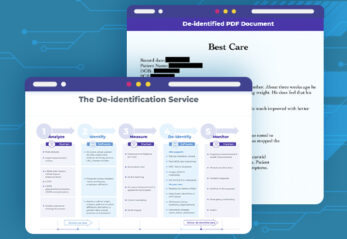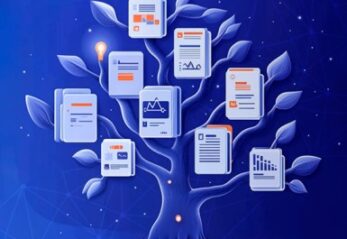John Snow Labs, the AI for healthcare company, today announced new capabilities designed to fully automate oncology patient registries, dramatically improving accuracy, scalability, and usability for clinical teams. The announcement will be made during a keynote session, “Automating the Oncology Patient Registry with Multimodal AI, Agentic Workflows, and Human Oversight,” at the Applied AI Summit, taking place October 14-16 online.
Oncology teams rely on high-quality registries to power real-world evidence generation, cohort selection, clinical trial design, outcomes research, and operational planning. However, creating such registries remains one of the most complex challenges in clinical informatics. Critical data is rarely explicitly documented and must instead be inferred from thousands of pages of pathology, radiology, genomics, and clinical notes.
Operational Challenges in Oncology Registries
Manual abstraction is slow, costly, and increasingly unsustainable. According to the National Program of Cancer Registries, building oncology registries by hand takes an average of 2 hours per cancer case, with complex patients requiring several days of work. One full-time tumor registrar can typically process only 6–10 cases per day, meaning 1,000 patient cases consume over 2,000 hours of labor—nearly a full year of work for a certified registrar.
The timeliness of cancer reporting is a nationwide concern: the National Program of Cancer Registries (NPCR) aims for 90% of cases diagnosed within the past 12 months to be reported to central cancer registries, yet only 14% of registries consistently meet this standard. Staffing shortages, particularly of Certified Tumor Registrars (CTRs), and growing ePath report volumes exacerbate delays, creating backlogs that can stretch up to 7 months for pathology report processing.
AI-Powered Automation as the Solution
John Snow Labs’ multimodal AI approach addresses these operational and technological challenges directly via:
- Multimodal AI and NLP for Triage: By processing unstructured data from pathology, radiology, and clinical notes, users can identify reportable cases accurately and automatically code data, dramatically reducing manual effort. This directly mitigates inefficiencies caused by high-volume, low-yield reports, where 96% of incoming records are non-reportable.
- Agentic Workflows and Auto-Consolidation: The system automatically reconciles partial or modified records in real time according to standardized rules, enabling staff to focus on “review by exception” instead of manual data consolidation.
- A Registrar-Friendly UI with Human Oversight: The longitudinal, patient-level view pre-fills oncology taxonomies, tracks clickable provenance, and supports validation and continuous feedback, building trust while ensuring compliance with reporting standards.
- Oncology-Specific Agents: These AI agents consistently apply guideline logic from SEER and AJCC, executing decision graphs for staging, histology classification, biomarker interpretation, and treatment coding, reducing errors and variability in registry data.
Transformational Impact and ROI
With John Snow Labs, the time to abstract a case drops from 2 hours to 1–2 minutes, representing a 60–100x productivity gain. Processing 1,000 cases that would take one year manually can now be completed in just a few days. As a result, staff can be redeployed to high-value clinical tasks, clearing backlogs and improving data quality without additional hires.
“Oncology registrars have long faced the dual challenge of extracting structured data from unstructured sources and consistently applying thousands of pages of guidelines,” said David Talby, CEO, John Snow Labs. “This new capability delivers a practical blueprint to automate patient registries in a way that is accurate, explainable, and production-ready for real-world operations. This is not just about speed – it’s about providing useful and reliable data for public health and research.”
To learn more about automating oncology patient registries, register for the free Applied AI Summit, and tune into our keynote session taking place at 12pm ET on Wednesday, October 15.





























